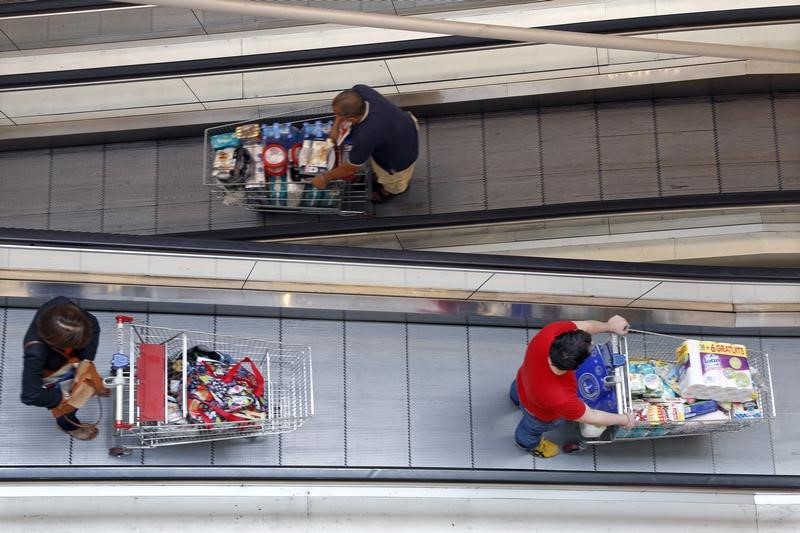* Feb retail sales +0.6 pct vs +0.3 pct forecast
* Feb housing approvals -6.2 pct vs +17.2 in Jan
By Swati Pandey
SYDNEY, April 4 (Reuters) - Australian retail sales rebounded in February as shoppers spent on cafes, clothing and household goods, a tentative sign that consumers may be coming out of the doldrums and contribute to economic growth.
Wednesday's data from the Australian Bureau of Statistics (ABS) showed retail sales climbed 0.6 percent in February, beating expectations of a 0.3 percent rise. That followed an upwardly revised 0.2 percent gain in January.
If sales for March hold up as well, it would suggest consumer spending likely added to growth last quarter. Household consumption accounts for around 57 percent of Australia's annual output.
The Australian dollar AUD=D4 added about 20 ticks on the release to touch a day's high of $0.7700.
Australia's retail sector has shown some signs of life since late last year, but analysts are not yet convinced that recovery will last as sluggish wages and household incomes sap spending power. cash interest rates at a record low 1.50 percent and still-high house prices, the nation's household debt-to-income ratio has sky-rocketed to unprecedented levels.
That means there are an increasing number of people who have little cash for spending on everything from cars to electrical appliances and new clothes as their pay packets get consumed by large mortgages.
The cloudy outlook for consumers is a major worry for the country's central bank, which is worried stagnant wages growth would hurt economy-wide spending.
Indeed, the Reserve Bank of Australia (RBA) has tempered its expectations for overall growth in 2018, no longer expecting the economy to accelerate at "a little above 3 percent" pace. ABS figures showed gains in every single state and territory except the two mining states of Western Australia and Queensland.
All industries saw rises led by household goods which added 1.1 percent. Clothing and footwear rebounded 1.1 percent after two straight monthly falls. Cafes, restaurants and takeaway food grew 0.7 percent while department stores bounced 1.5 percent after declines in each of the preceding three months.
Other data out on Wednesday pointed to resilience in the housing market. Approvals to build new homes eased 6.2 percent in February, but that followed hefty gains in January and November and a sharp fall in December as large apartment projects went through.
Overall, home building is holding up better than many analysts had feared with strength showing through in detached houses where approvals hit their highest in almost two years.
House approvals were also 6.1 percent higher than in February last year, an encouraging sign for jobs and spending given the broad economic spillovers from construction.
